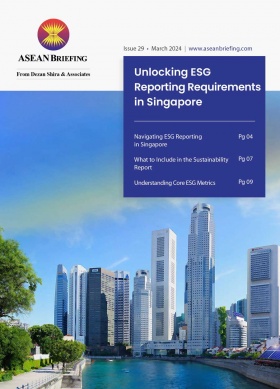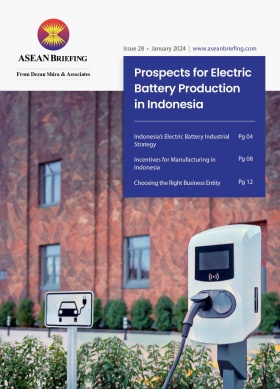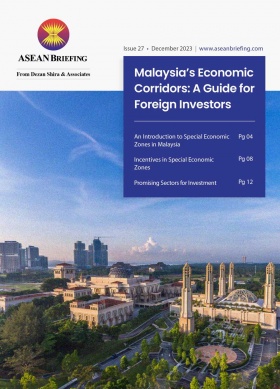Digital Platforms Obligated to Pay for Media Content in Indonesia
In February, Indonesia’s President Joko Widodo signed a Presidential Regulation that will require companies such as Meta and Google to pay news publishers to feature media content on their platforms.
The president stated that the regulation aims to foster “fairer cooperation between media companies and digital platform companies” without reducing press freedom or regulating press content.
The regulation will come into force six months from the date of promulgation on February 20, 2024.
Media licensing and profit-sharing requirements
The regulation stipulates that digital platform companies must maintain a healthy news business ecosystem and support quality journalism.
A digital platform company is defined as “a private electronic system operator that provides and operates digital platform services and utilizes them for commercial purposes through data collection and processing.” Meanwhile, a “press company” is defined as “an Indonesian legal entity that operates a media business, including print media, electronic media, and news agencies, as well as other media companies that specifically organize, broadcast, or distribute information”.
This means the digital platform’s legal obligations are only to media companies that are incorporated in Indonesia, and not to overseas companies. The media companies must also be verified by the Press Council to be protected under the regulation.
To support quality journalism, digital platform companies are required to, among other things, “collaborate with media companies”. This collaboration entails having a paid license, a profit-sharing scheme, sharing aggregated news user data, and/or other forms of collaboration with the press company.
Profit sharing means that digital platform companies will be required to distribute the income they have earned from the use of news produced by the media companies “based on economic value calculations” although the regulation does not clarify the specific calculation method.
In addition to the monetary obligations, digital platform companies will also be responsible for fostering a healthy media environment on their platforms by taking the following actions:
- Refraining from facilitating the dissemination and/or commercializing news content that does not comply with the Law on the Press after receiving reports through the reporting channels that the platform provides;
- Striving to prioritize the facilitation and commercialization of news produced by media companies (that have been verified by the Press Council);
- Providing fair treatment to all verified media companies in offering digital platform services;
- Implementing training and programs aimed at supporting quality and responsible journalism; and
- Strive to design news distribution algorithms that support the realization of quality journalism under democratic values, diversity, and regulations.
The potential impact on Indonesia’s digital and media sectors
It is hoped that the new regulation will help to safeguard media and the press in Indonesia and prevent the disappearance of traditional media outlets to digital competitors. Profit sharing may indeed provide a much-needed boost and safety net to the industry at a time when it is struggling to find sustainable revenue streams amid declining advertising income because of the host platforms.
The new regulation is not without precedent. In 2021, Australia’s parliament passed the News Media Bargaining Code, a law that requires digital platforms to pay media outlets for the content displayed on their platforms. A review of the law conducted by Australia’s Treasury found that the law had been a “success to date”, with over 30 commercial agreements signed between digital platforms and Australian news businesses that “were highly unlikely to have been made without the Code”. Meanwhile, an independent report conducted by the Judith Neilson Institute estimated that the annual payments made to media companies because of the Code exceeded AU$ 200 million (US$130.72 million).
Complying with Indonesia’s Personal Data Protection Law: Essential Steps for Businesses
Webinar | Tuesday, April 30, 2024 / 3:00 PM Jakarta / 4:00 PM China / 10:00 AM CET
Join our upcoming webinar as Hardy Salim, Assistant Manager of the Business Advisory Unit, takes you through an in-depth explanation of Indonesia’s Personal Data Protection law and what steps companies need to undertake to ensure compliance.
President Widodo nonetheless acknowledges that the new regulation will not be enough to prevent the erosion of media companies, stating that “this does not solve the problem as a whole, media companies and all of us still have to think about how to deal with this digital transformation”.
About Us
ASEAN Briefing is produced by Dezan Shira & Associates. The firm assists foreign investors throughout Asia and maintains offices throughout ASEAN, including in Singapore, Hanoi, Ho Chi Minh City, and Da Nang in Vietnam, in addition to Jakarta, in Indonesia. We also have partner firms in Malaysia, the Philippines, and Thailand as well as our practices in China and India. Please contact us at asean@dezshira.com or visit our website at www.dezshira.com.
- Previous Article A Guide to Estimated Chargeable Income Filing in Singapore
- Next Article New Salary Criteria for Hiring Foreign Executives in Singapore












